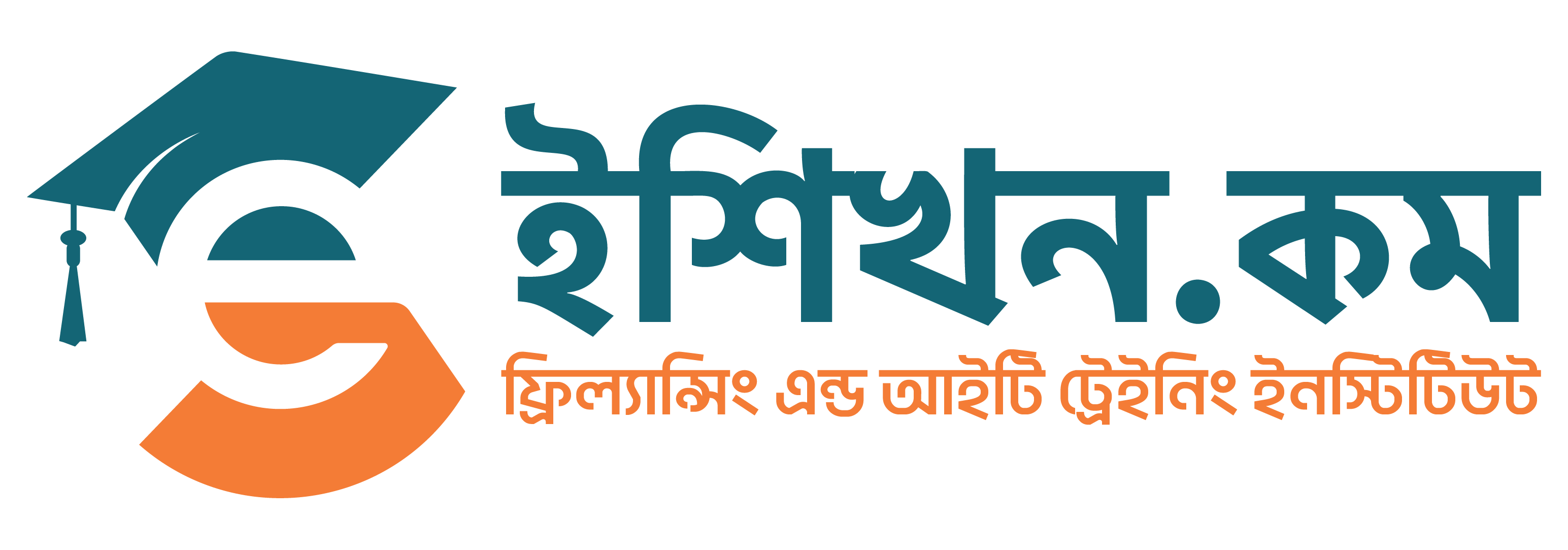- Can not help, could not help, look forward to, with a view to, get used to, mind ইত্যাদির পরে verb-এর সঙ্গে ing যুক্ত হয়।
যেমন: He came to Dhaka with a view to (find) a job.
Ans.: He came to Dhaka with a view to finding a job.
I cannot help (laugh).
Ans.: I cannot help laughing.
- কোনো sentence-এর শুরুতে subject-এর স্থানে verb থাকলে verb-এর সঙ্গে ing যোগ হয়।
যেমন: (To swim) is a good exercise.
Ans.: Swimming is a good exercise.
(To speak) is an art.
Ans.: Speaking is an art.
- If-যুক্ত clause-এর প্রথমটিতে subject-এর পর were থাকলে দ্বিতীয় অংশে subject-এর পরে would/could/ might বসে এবং verb-এর Present from বসে। আবার, would have/could have/would have-ও বসতে পারে। সে ক্ষেত্রে verb-এর Past participle form বসে।
যেমন: If I were an artist, I (draw) a nice picture.
Ans: If I were a artist, I would draw a nice picture.
If I were a billionaire, I (establish) a hospital for the poor.
Ans.: If I were a billionaire, I would establish a hospital for the poor.
- Had-এর পরে subject এবং verb-এর Past participle থাকলে পরবর্তী clause-এর subject-এর পরে would have/could have/might have + verb-এর Past participle form বসে।
যেমন: Had I been a teacher, I (talk) the real story to my students.
Ans.: Had I been a teacher, I would have talked the real story to my students.
- Verb ‘to be’-বিহীন sentence-কে negative বা interrogative করতে হলে tense ও subject-এর number ও person অনুসারে do, does, did ব্যবহার করতে হবে।
যেমন: We not (play) Ha-du-du.
Ans.: We do not play Ha-du-du.
She not (play) football.
Ans.: She does not play football.
- সাধারণত preposition—on, in of, for, from, by, after at, beyond, upon, against, with, without, before ইত্যাদি—এর পরে verb-এর সঙ্গে ing যোগ হয়।
Rina is busy in (do) her homework.
Ans.: Rina is busy in doing her homework.
Keep on (try) hard.
Ans.: Keep on trying hard.
- Interrogative sentence যদি who, what, why, which, when, where, whose, how ইত্যাদি question word দ্বারা শুরু হয়, তাহলে subject-এর আগে tense ও person অনুযায়ী auxiliary verb ব্যবহার করতে হবে।
Why he (look) so happy?
Ans.: Why does he look so happy?
When father (come)?
Ans.: When will father come?
- সাধারণত নিচে লিখিত verb-গুলোর পরে gerund বসে। যেমন: admit, enjoy, report, appreciate, finish, recent, avoid, mind, resist, miss, resume, consider, postpone, risk, delay, practice, suggest, escape, imagine, save, recall, prevent, propose, stop, deny, quit ইত্যাদি।
We enjoy (watch) TV.
Ans.: We enjoy watching TV.
I have finished (writing).
Ans.: I have finished writing.
- It is time; it is high time ইত্যাদির পর Subject থাকলে Verb টি Past Tense এ হয়।
আর এদের পর Subject না থাকলে to + verb হয়।
It is high time we discussed the matter.
It is time to do the work.
- Have, has, had, having, to be এর পর ব্রাকেটের verb এর Past Participle হয়।
* Hanged ব্যবহৃত হয় ফাঁসির ক্ষেত্রে।
She went away having taken money.
The principal desired the notice to be hung.
- নিজে না করে কাউকে দিয়ে কোন কাজ করে নেওয়ার জন্য have, get, let, help ইত্যাদি (এ গুলোকে Causative Verb বলে) ব্যবহৃত হলে, নিচের Structure ব্যবহৃত হয়।
have/get +object +v.p.p.
have/let/make/help+obj+verb এর Present form
*আমি চুল কাটাতে যাচ্ছি, এর ইংরেজী I am going to cut my hair লিখলে ভুল হবে। কারন তখন আপনি নাপিত হয়ে যাবেন। শুদ্ধ ইংরেজী হবে I am going to have my hair cut.
I got my car repaired.
Our teacher makes us work very hard.
- Make, let, need, dare, had better, had rather, would better, would rather ইত্যাদির পর Verb এর Present form হয় এবং Verb এর পূর্বে to থাকলে তা উঠে যায়।
He did not let me play the guitar.
You had better leave the place. (to leave ব্যবহৃত হয় নাই এবং left ও ব্যবহৃত হয় নাই)
You would better go there.
- Lest দ্বারা দুটি বাক্যাংশ যুক্ত হলে Lest যুক্ত অংশের Subject এরপর should হয়।
He ran fast lest he should miss the train.
নিয়মঃ Sentence এ just, just now, already, yet, ever, never, lately, recently ইত্যাদি থাকলে Present Perfect Tense হয়।
Have you finished the work yet?
He has already reached there.
- নিয়মঃ দুটি বর্তমান ঘটনা যদি while/when দ্বারা যুক্ত হয়, তাহলে while/when যুক্ত অংশটি Present Continuous হয়।
Don’t make a noise while your father is sleeping.
- Sentence এ mind, worth, cannot help, could not help, with a view to, look forward to, would you mind, get used to, be used to, phrase, preposition থাকলে verb এর সাথে ing যুক্ত হয়।
She is looking forward to going to Europe.
Would you mind closing the door?
My father prevents me from going there.
নির্দিষ্ট কোন সময় উল্লেখ না করা হলে Sentence এ যদি always, often, sometimes, everyday, daily, regularly, usually, normally, occasionally, generally ইত্যাদি থাকে তাহলে Verb টি Present Indefinite Tense হয়।
Everyday she wears black dress.
We often fall a victim of circumstances.
এই লেকচারের পরের পেইজে যেতে নিচের ![]() …. তে ক্লিক কর।
…. তে ক্লিক কর।
